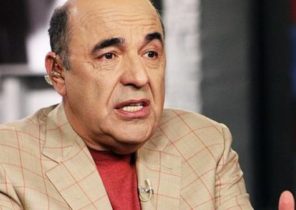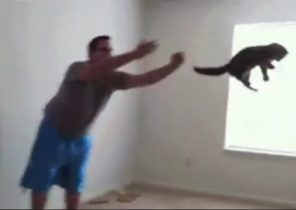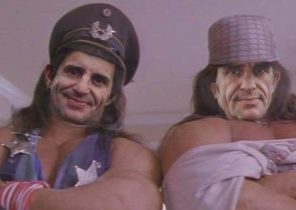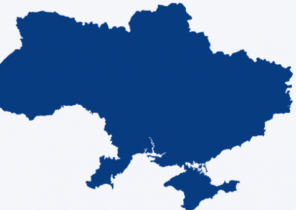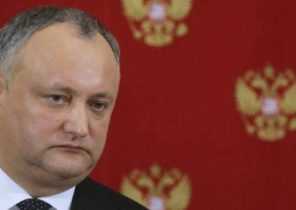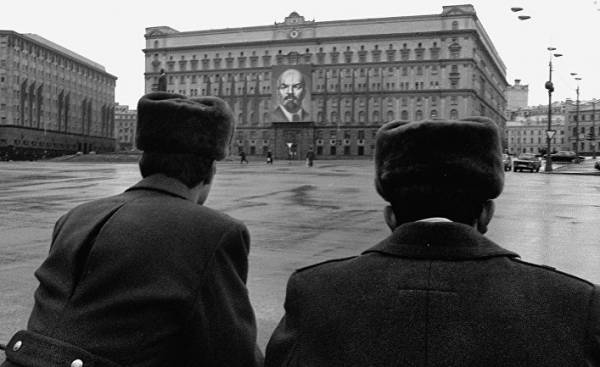
Policy Wojtyla will revive the Catholic Church in the socialist countries, was head of the KGB after the election of the Polish Pope.
From documents declassified by the security Service of Ukraine, that Moscow, which followed the situation in Poland, was sure: “the wildness beyond the bug river” may affect the situation in the USSR.
Poland received a report package KGB 1978-90-ies, which were written for the guidance of the Communist party of Ukraine. These materials allow you to get acquainted with the details of the activities of Soviet security services and their methods and scale of surveillance. Analysis of documents was carried out by scientists from the College of Europe in Natolin in the framework of the “Three revolutions”. The result will be presented at the international conference.
The Director of the archive of the Ukrainian security Service in Kyiv Andriy Kohut in a conversation with Rzeczpospolita recalled that the KGB had a broad network of informants and great sources of information. “The KGB knew about the plans of the democratic opposition in Ukraine,” he says, paying attention at the same time that the reports, which were prepared based on the received agent information, was filled with Communist Newspeak, and imbued with ideology.
“Unfortunately, we don’t know how big the network of agents was the KGB in the Ukraine. In the mid-1990s folder secret employees destroyed on orders from Moscow,” adds the Director of the archive. In the late 1980s in the Ukrainian KGB worked more than 40 thousand employees.
The Soviet intelligence agencies not only monitored the situation in Ukraine, but also conducted active operations, trying to influence the Ukrainian opposition. “I recall that in those years she maintained contact with the Polish opposition, and also existed in the United States and Western Europe, Ukrainian associations, including with the Bandera community. Their main goal was fighting communism. Of course, the KGB tried to do everything possible to embroil these forces. Similar, only improved methods, uses Russia now,” says Andrew Kohut.
1 November 1978 (two weeks after the election of Karol Wojtyla Pope) the head of the Ukrainian KGB Fedorchuk reported in the report addressed to the members of the Central Committee of the Communist party of Ukraine that the Pope “has its own concept, which consists in a reorientation of the Western world and revitalizing of the Catholic Church in the socialist countries.” “Wojtyla became famous in the reactionary Western circles as a “fighter for human rights in Poland”, which requires the return of a “traditional religion in schools” and declares that “the Church is the last Bastion of freedom”,” wrote Fedorchuk. He predicted that the election of Wojtyla Pope could lead to “a significant intensification of the Ukraine Catholics and Uniates.” Therefore, as he points out in the report, “the KGB of the USSR are developing activities to actively counter the subversive aspirations of the Vatican, opening and suppression of hostile actions of his emissaries and missionaries, detection and interception of channels of communication with the Catholic Uniates in the territory of the Republic and the control over them. The number of Catholic parishes — 98, priests — 43 also, according to operational data, in the Republic, there are 1000 priests, Jesuits, monks, nuns and “Uniates-Postnikov””.
“The KGB believed the Catholic Church is the enemy. His staff were convinced that the election of the Pope of the pole will have an impact on the Church in Eastern Europe” — said an employee of the Polish Academy of Sciences and a former Deputy foreign Minister Pawel Kowal (Paweł Kowal).
December 14, 1981, the day after the introduction in Poland of the martial law, the head of the Ukrainian KGB Fedorchuk reported to comrade Shcherbytsky from the Central Committee of the Communist party of Ukraine, that “the working people of the Ukraine welcomed the message of the Soviet mass media about the introduction in Poland of the martial law and isolation of the leaders of “Solidarity” and participants of the illegal counter-revolutionary organizations.” Fedorchuk drew, however, note that “some in Ukraine are the campers and castrodale believe that the introduction of martial law in Poland will lead to a civil war, as there is quite a strong opposition”.
Among published by the security service of Ukraine documents of special interest is the report of 14 December 1981, dedicated to the surveillance of the airwaves, which was engaged in KGB counterintelligence. “Revealed a hidden network of radio equipment for the US state Department, designed to work in the periods of aggravation of the situation in Poland. Correspondents of the network located in Warsaw, Poznan, Krakow, Wroclaw and support the short-term (up to several seconds) communication with the radio centers of the United States, located on the territory of Germany. Revitalization of the work of this network was observed only during periods of maturing of a universal strike,” — reported the KGB.
On the scale of the action of the Soviet intelligence agencies is evidenced by the fact that they listened 2 800 sessions of Polish and foreign radio Amateurs on short wave. Identified 292 of Polish hams, regularly communicating with foreigners against whom there was evidence of their potential connection with the security services of the enemy, they wrote.
“I have not heard that the KGB arranged such operations against the socialist countries. Surveillance of the negotiations on short wave was engaged in the Department, which was part of the Second Department of the Ministry of interior, that is counterintelligence. A document from the archive of the Ukrainian security service shows that the KGB began to radio in February 1981. Perhaps this was due to the impending Bydgoski provocation (beating by police of a group of activists of “Solidarity” at the session of the provincial Council in Bydgoszcz on March 19, 1981), the teachings of the troops of the Warsaw Pact countries, and plans to conduct military situation — reflects paczkowski Professor Andrzej (Andrzej Paczkowski), working in modern Polish history.
The documents that gave Poland, describe the actions of the KGB in 1990 when the Ukrainian people began to free themselves from Soviet domination. At this time in Poland already began the work of the government of Tadeusz Moravcova (Tadeusz Mazowiecki).
“These documents, in particular, show the scale of surveillance, which was led by KGB — adds Pavel Koval. — However, the Ukrainian youth was able to mobilize and start a revolution. The initial conditions for the Ukrainians were worse than the poles, but they managed to create a movement to fight for independence,” — reminds the analyst.
Security followed the activation of the “Ukrainian extremist groups” seeking to seize power. “For subversive purposes they use samizdat literature, nationalist symbols, carry out attempt of formation “combat brigades”, are their special training and education”, write the KGB. As meticulously calculated intelligence Committee, in the period from early 1989 until February 1990 these circles “organized and conducted 1565 mass events (including unauthorized 732), which was attended by over two million people.” “The protesters are picketing the building of the party, government, law enforcement agencies, are holding as hostages of their leaders and workers are calling for political strikes, the exit of Ukraine from the USSR, the establishment of a national professional army, rehabilitation petliurism, and OUN-UPA (banned in the Russian organizations — approx. TRANS.), stir up anti-army sentiment,” — describe the situation they. In addition, the KGB drew attention to the growing religious conflicts. “Uniates captured the 200 buildings of the cult of the premises of the Orthodox Church”, — reported his employees.
